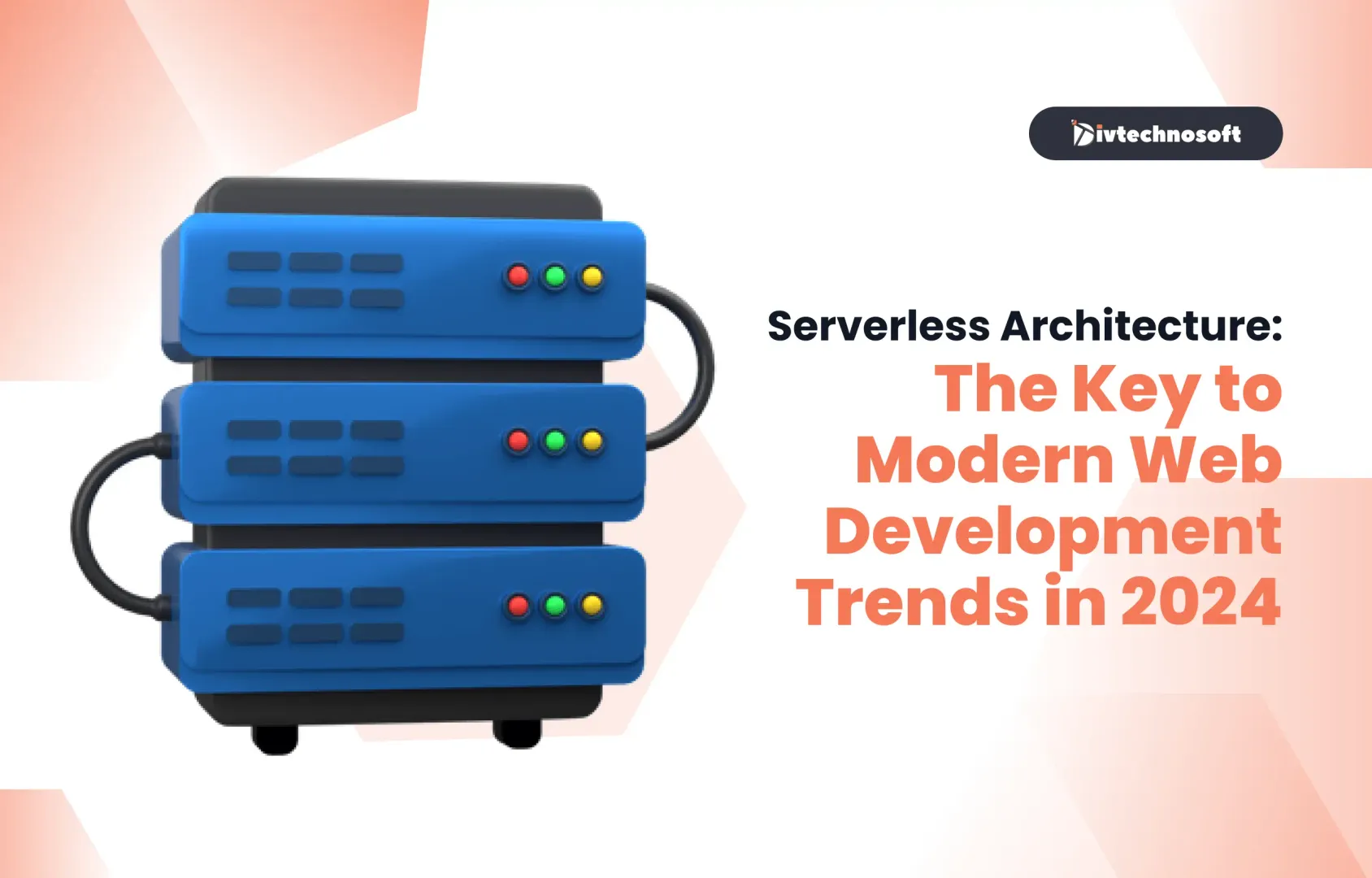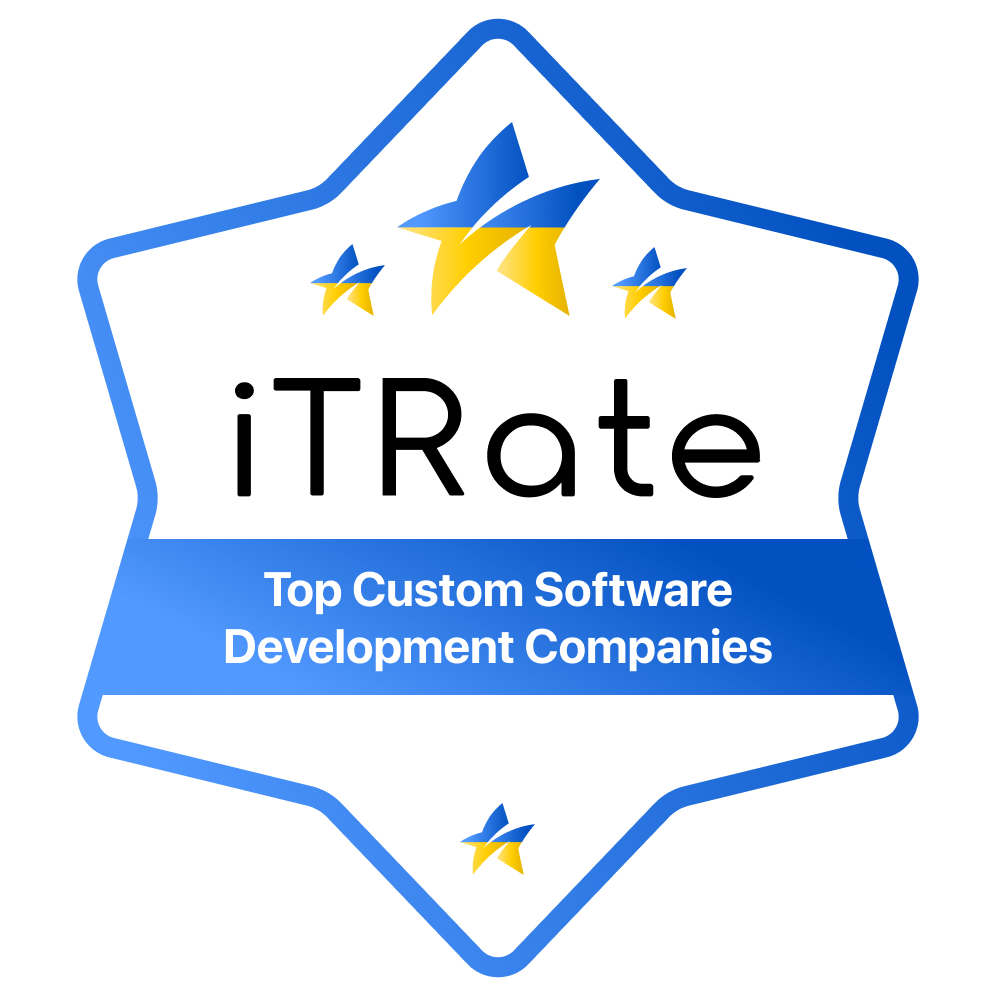The Rise of AI: How it's Shaping the Future of Web Development
Discover how AI is transforming web development in 2024 automating coding, enhancing user experience, improving security, and enabling smarter, faster, and more personalized websites. Learn the key technologies and trends driving the future of digital innovation.
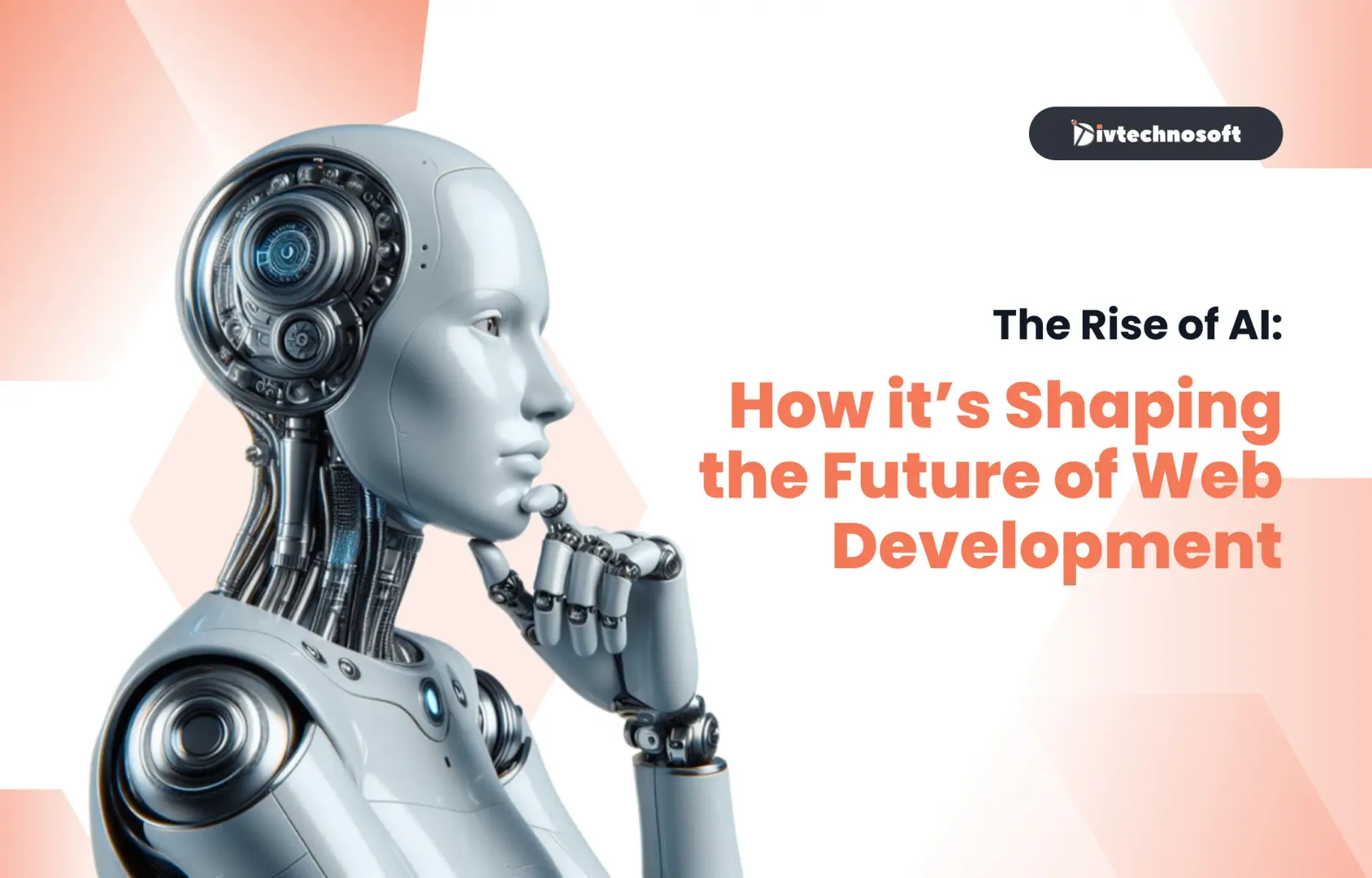
In a digital era where innovation drives success, the rise of artificial intelligence- ai in web development is fundamentally reshaping the industry. As developers aim to create more efficient, user-friendly experiences, AI has become a game-changer in how websites are designed, built and maintained.
In web development, AI is changing how things are done from automating boring tasks to improving how users interact with websites. Creating websites used to take a lot of time and effort, but AI makes coding, testing, and designing faster and easier.
This change isn’t just about being quicker; it allows developers to build interactive, eye-catching websites. As we explore this topic, get ready to learn how important AI is in shaping the future of web development and the exciting possibilities it offers.
The Integration of Artificial Intelligence and Web Development
The integration of Artificial Intelligence (AI) with web development is revolutionizing how websites and applications are created and maintained. Beyond their creative uses, AIs are increasingly being applied in web development and software engineering. They assist in various ways, such as generating and optimizing code, automating tasks, and more.
The integration of AI with web development leads to impressive results, improving how developers work and reducing the need for manual efforts. This means web developers can create better solutions faster and with fewer mistakes.
Using AI in web development boosts productivity by automating repetitive tasks, cutting down on effort, and streamlining the entire development process.
Here are some key benefits of this powerful combination:
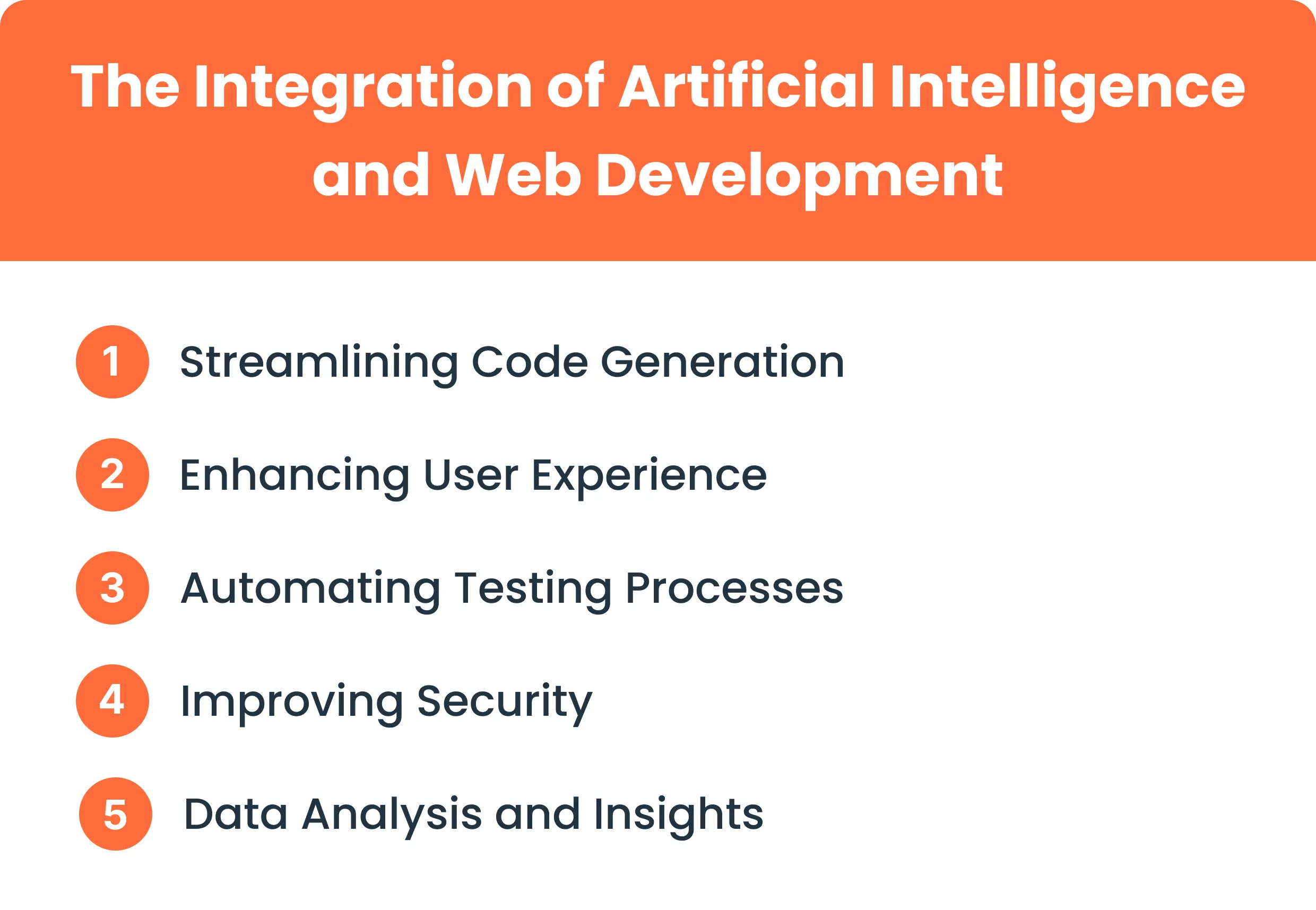
1. Streamlining Code Generation
AI tools can assist developers by generating code automatically. This not only saves time but also helps reduce human errors. With AI’s ability to analyze vast amounts of data, developers can focus on higher-level tasks while the AI handles routine coding requirements.
2. Enhancing User Experience
AI plays a crucial role in personalizing user experiences on websites. By analyzing user behavior and preferences, AI can help create customized content, recommend products, and improve navigation. Chatbots, powered by AI, provide real-time assistance, answering queries and guiding users through their journey.
3. Automating Testing Processes
AI algorithms can quickly identify bugs and performance issues in the area of AI in web development, allowing developers to focus on fixing them rather than spending time on manual testing. This leads to quicker releases and more reliable web applications.
4. Improving Security
AI enhances web security by monitoring for unusual activity and identifying potential threats in real-time. Machine learning algorithms can analyze patterns and detect anomalies, enabling developers to respond quickly to security breaches and protect sensitive user data.
5. Data Analysis and Insights
With AI, developers can analyze user data more effectively to gain insights into user behavior and preferences. This information can inform design choices and help create more engaging and relevant content, ultimately leading to higher conversion rates and customer loyalty.
AI in Web Development: Advantages and Disadvantages
AI has transformed web development by enhancing efficiency and user experience, but it also comes with its own set of challenges. Here are the key advantages and disadvantages of integrating AI into web development.
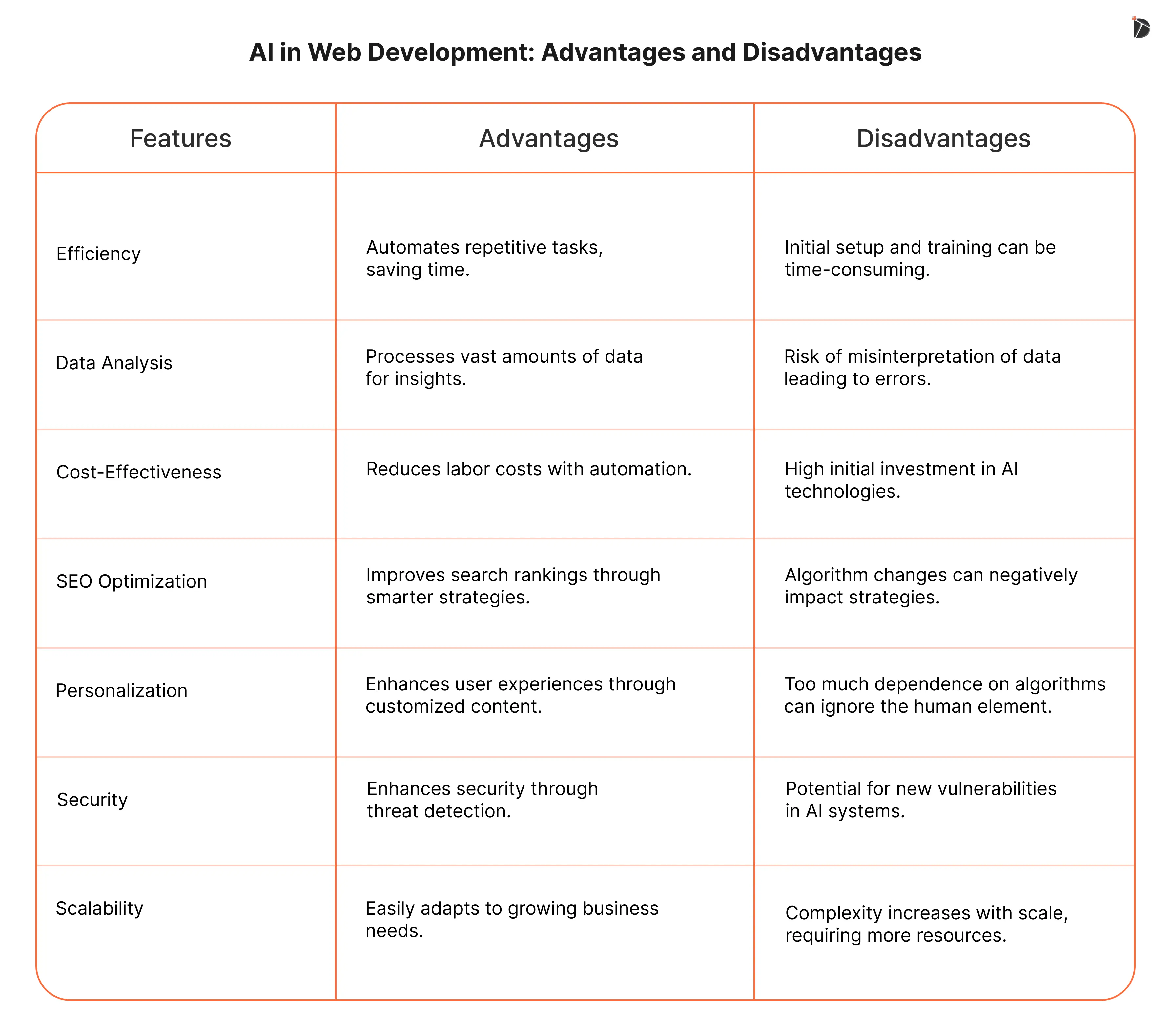
Key Technologies Revolutionizing Web Development
As technology continues to advance, web development is undergoing a significant transformation. From improving user experiences to simplifying the development process, several key technologies, including AI in web development are leading the charge. Here’s a look at some of the most exciting innovations reshaping the field of web development.
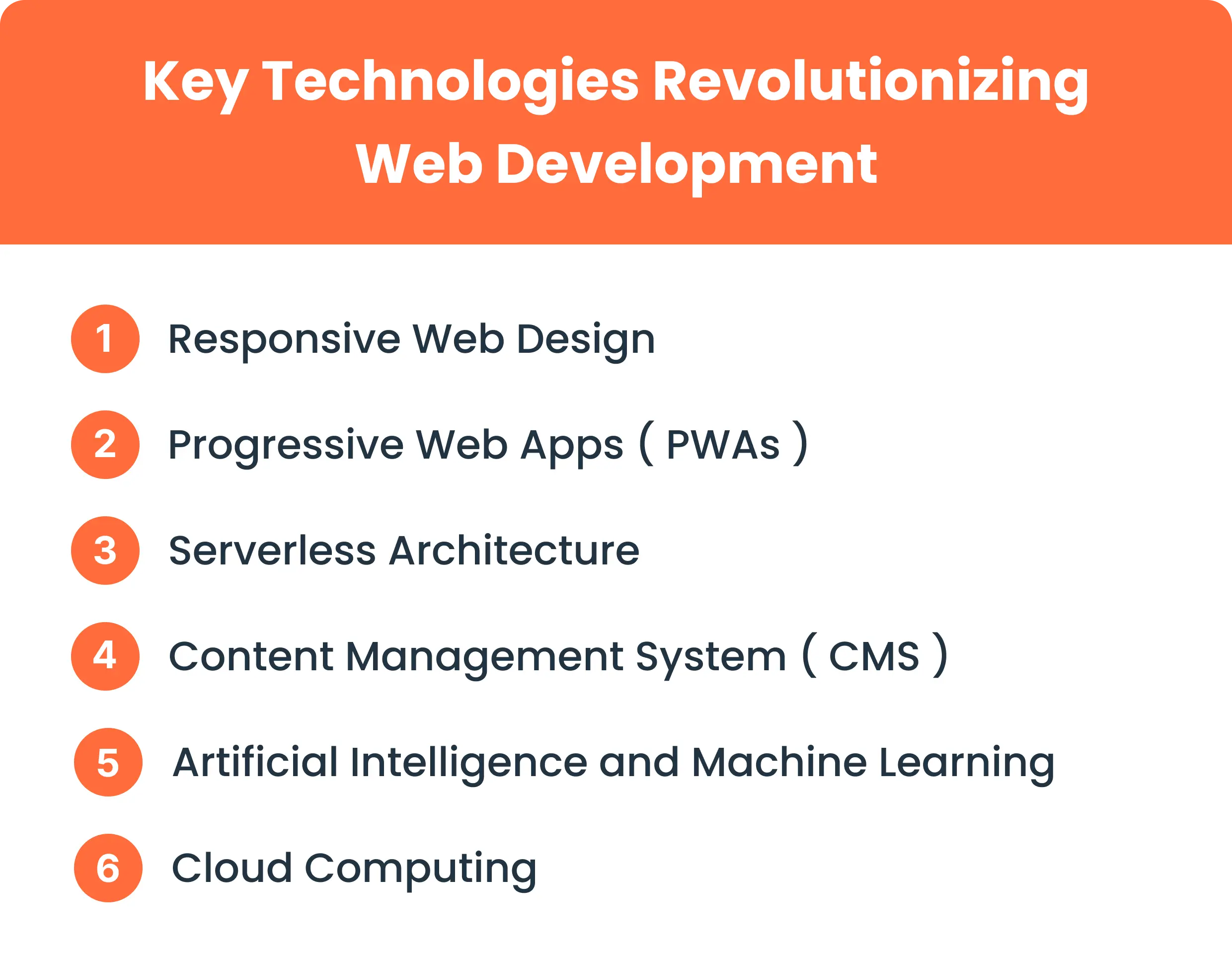
1. Responsive Web Design
Imagine visiting a website that looks perfect whether you’re on your phone, tablet, or desktop. That’s what responsive web design does! It adjusts the layout and content to fit any screen size, making sure users have a smooth experience no matter how they access the site.
2. Progressive Web Apps ( PWAs )
Progressive Web Apps combine the best features of websites and mobile apps. They load quickly, can work offline, and send notifications just like a native app. This means users can enjoy a seamless experience without needing to download anything from an app store. With the integration of AI in web development, PWAs can offer even more personalized experiences and smarter features. PWAs make it easier for businesses to reach users on the go, increasing engagement and making it more likely that visitors will return.
3. Serverless Architecture
Serverless architecture allows developers to build and run applications without having to manage servers. Instead of worrying about the infrastructure, developers can focus on writing code. This approach saves time and reduces costs, as businesses only pay for the computing power they use.
4. Content Management System ( CMS )
Content Management Systems like WordPress make it easy for anyone to create and manage a website. Even if you don’t have technical skills, these platforms allow you to add content, change designs, and update information with just a few clicks. This easy-to-use approach allows more people to manage their online presence and keep their sites updated and interesting.
5. Artificial Intelligence and Machine Learning
AI and Machine Learning are like having a personal assistant for your website. They analyze user behavior to offer personalized experiences, such as recommending products or providing instant customer support through chatbots. This technology helps create a more engaging and personalized experience for each visitor, making them feel valued.
6. Cloud Computing
Cloud computing is changing the game by offering on-demand access to resources over the internet. Developers can scale their applications easily and work together from anywhere. This flexibility means businesses can adapt quickly to what their users need, making the web development process more efficient and effective.

Future Trends: Insights for the Future
As we look to the future, web development is going to change a lot because of new technologies and what users want. These trends will change how we build and use websites, making them easier to use and more efficient.
Innovative AI Technologies Shaping the Future
Smarter chatbots are becoming a major trend in AI in web development. These AI tools are improving their ability to understand user questions, providing quick and helpful answers to enhance customer support. At the same time, automated development tools will simplify coding and testing, allowing developers to concentrate on more important tasks and speed up project completion.
Personalization is also taking center stage. Websites will increasingly use AI in web development to customize content and recommendations for each user, creating a more engaging experience. Additionally, as more people turn to voice and visual searches, developers will need to optimize websites to make it easier for users to find what they are looking for. Improving security is another important focus, with AI helping to quickly detect and respond to threats, ensuring that user data stays safe.
Conclusion
In summary, AI is fundamentally changing how we approach web development. With these smart technologies, we can create websites that are not only user-friendly but also personalized to fit individual needs. This means users will have a better experience, finding exactly what they want more easily.
As we look to the future, it’s clear that AI in web development will continue to play a big role. By incorporating AI tools, businesses can work more efficiently, respond quickly to user feedback, and even enhance security to protect sensitive information.
The key takeaway is that embracing AI isn’t just an option, it’s a necessity for staying ahead in the digital landscape. Those who adapt to these changes will unlock new opportunities and create engaging, effective websites that stand out.

